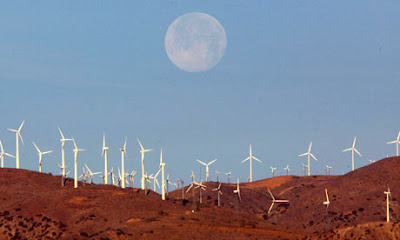Climate Change Shattering Marine Food Chain

by Stephen Leahy, Inter Press Service
BROOKLIN, Canada - The loss of reefs will have a catastrophic impact on all marine life.
One-third of the coral at official monitoring sites in the area of Puerto Rico and the U.S. Virgin Islands have recently perished in what scientists call an "unprecedented" die-off.
Extremely high sea temperatures in the summer and fall of 2005 that spawned a record hurricane season have also caused extensive coral bleaching extending from the Florida Keys to Tobago and Barbados in the south and Panama and Costa Rica, according to the U.S. National Oceanic and Atmospheric Administration's Coral Reef Watch.
High sea temperatures are also killing parts of Australia's 2,000-kilometre-long Great Barrier Reef, the world's largest living reef formation. As summer ends in the Southern Hemisphere, researchers are now investigating the extent of the coral bleaching. Up to 98 percent of the coral in one area has been affected, reported the Australian Institute of Marine Science last week.
"The Great Barrier Reef has been living on this planet for 18 million years and we've undermined its existence within our lifetimes," says Brian Huse, executive director of the Coral Reef Alliance, a U.S.-based NGO dedicated to protecting the health of coral reefs.
"Twenty percent of Earth's reefs have been lost and 50 percent face moderate to severe threats," Huse told IPS.
The economic value of reefs globally is estimated at 375 billion dollars, he says.
Click to Read



Comments
http://ecovoice.blogspot.com/